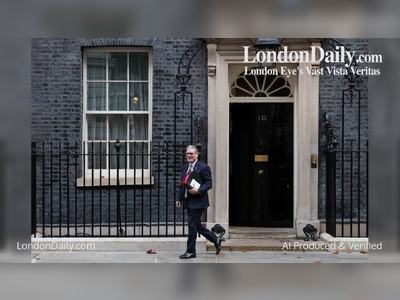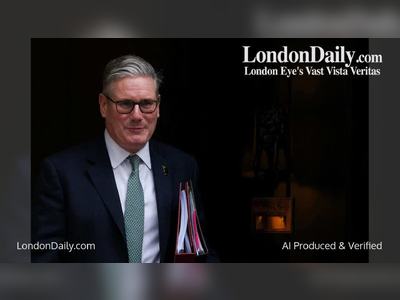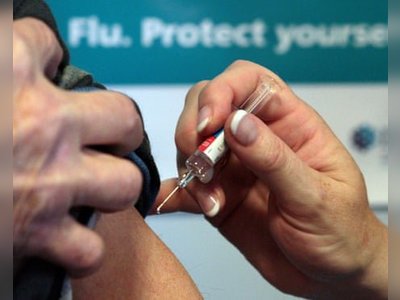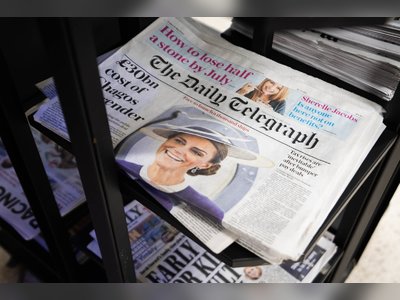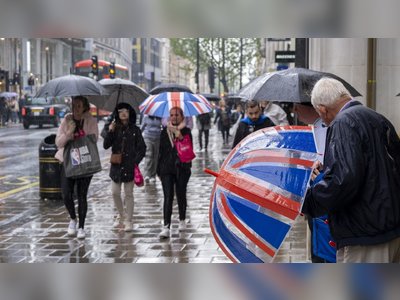Reform UK Withdraws from BBC Documentary Amid Legal Storm Over Trump Speech Edit
Party cites lost trust after BBC’s edited clip of Donald Trump’s January 6 speech triggers resignations and threatens $1 billion lawsuit
The UK political party Reform UK has pulled out of a planned documentary with the BBC, citing loss of confidence in the broadcaster following controversy over an edited clip of Donald Trump’s January 6, 2021 speech.
The film, to be produced by October Films and presented by Laura Kuenssberg, will undergo substantial disruption after Reform UK’s internal memo directed members to “politely decline to participate” owing to what it described as “disinformation” in the earlier BBC production.
The row stems from a previous BBC documentary under its flagship Panorama series, which spliced separate statements by Trump into what appeared to be a single incitement to violence during the US Capitol attack.
That edit prompted widespread backlash, more than 500 formal complaints, and led to the resignations of BBC Director-General Tim Davie and News Chief Deborah Turness.
Trump has responded with a legal letter demanding retractions and compensation, warning the BBC of a potential lawsuit for no less than one billion US dollars if it fails to comply by a set deadline.
He described the broadcaster’s actions as “defrauding the public” and said he believed he had an “obligation” to pursue legal redress.
Reform UK’s message to its members made clear that while the production company October Films had acted professionally, the association with the BBC was no longer tenable in light of the editing scandal.
The party said trust was “lost” and both the broadcaster and production house must “do a lot of hard work to regain that trust.”
Meanwhile, the BBC is under intense political and public scrutiny as it faces an upcoming review of its charter.
Culture Secretary Lisa Nandy reiterated the need for the corporation to be “fiercely independent” and “genuinely accountable” to the public it serves, against a backdrop of accusations of bias and editorial failures.
The documentary’s cancellation by Reform UK adds fresh pressure on the broadcaster to rebuild credibility in an era of heightened media polarisation.
The film, to be produced by October Films and presented by Laura Kuenssberg, will undergo substantial disruption after Reform UK’s internal memo directed members to “politely decline to participate” owing to what it described as “disinformation” in the earlier BBC production.
The row stems from a previous BBC documentary under its flagship Panorama series, which spliced separate statements by Trump into what appeared to be a single incitement to violence during the US Capitol attack.
That edit prompted widespread backlash, more than 500 formal complaints, and led to the resignations of BBC Director-General Tim Davie and News Chief Deborah Turness.
Trump has responded with a legal letter demanding retractions and compensation, warning the BBC of a potential lawsuit for no less than one billion US dollars if it fails to comply by a set deadline.
He described the broadcaster’s actions as “defrauding the public” and said he believed he had an “obligation” to pursue legal redress.
Reform UK’s message to its members made clear that while the production company October Films had acted professionally, the association with the BBC was no longer tenable in light of the editing scandal.
The party said trust was “lost” and both the broadcaster and production house must “do a lot of hard work to regain that trust.”
Meanwhile, the BBC is under intense political and public scrutiny as it faces an upcoming review of its charter.
Culture Secretary Lisa Nandy reiterated the need for the corporation to be “fiercely independent” and “genuinely accountable” to the public it serves, against a backdrop of accusations of bias and editorial failures.
The documentary’s cancellation by Reform UK adds fresh pressure on the broadcaster to rebuild credibility in an era of heightened media polarisation.
